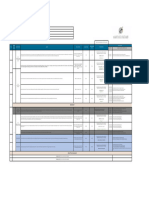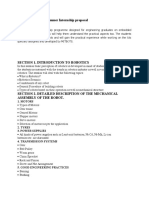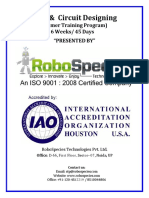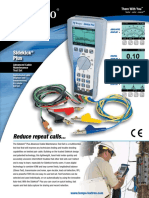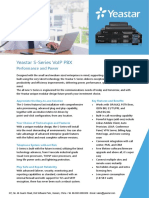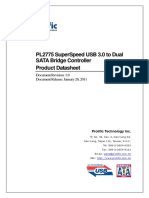0% found this document useful (0 votes)
4 views2 pagesSyllabus
The Robotics Training Program is a three-month course aimed at providing students with a comprehensive understanding of robotics principles and practical skills in designing, building, and programming robots. The syllabus covers various topics including electronics, mechanics, programming, sensors, and advanced robotics concepts, with hands-on projects and assessments throughout the course. The program is customizable to meet the specific needs of students.
Uploaded by
AHILA RAJANCopyright
© © All Rights Reserved
We take content rights seriously. If you suspect this is your content, claim it here.
Available Formats
Download as PDF, TXT or read online on Scribd
0% found this document useful (0 votes)
4 views2 pagesSyllabus
The Robotics Training Program is a three-month course aimed at providing students with a comprehensive understanding of robotics principles and practical skills in designing, building, and programming robots. The syllabus covers various topics including electronics, mechanics, programming, sensors, and advanced robotics concepts, with hands-on projects and assessments throughout the course. The program is customizable to meet the specific needs of students.
Uploaded by
AHILA RAJANCopyright
© © All Rights Reserved
We take content rights seriously. If you suspect this is your content, claim it here.
Available Formats
Download as PDF, TXT or read online on Scribd
/ 2

























